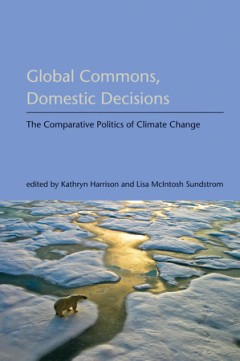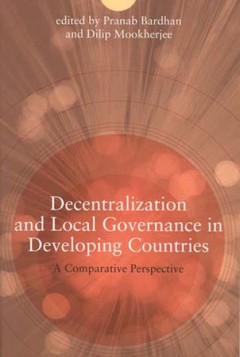Filter by

Democratizations: Comparisons, Confrontations, and Contrasts
A cross-disciplinary examination of democratization, as seen in different attempts at it across the globe.Democracy is not in steady state and democratizations are open-ended processes; they depend on structures and functions in systemic contexts that idiosyncratically evolve in tone, tenor, direction, and pace. They affect and are affected by scores of determinants, both perceived and hypothet…
- Edition
- -
- ISBN/ISSN
- 9780262270366
- Collation
- 1 online resource (xiii, 368 pages)
- Series Title
- -
- Call Number
- -

Global commons, Domestic decisions :the comparative politics of climate change
Climate change represents a “tragedy of the commons” on a global scale, requiring the cooperation of nations that do not necessarily put the Earth's well-being above their own national interests. And yet international efforts to address global warming have met with some success; the Kyoto Protocol, in which industrialized countries committed to reducing their collective emissions, took effe…
- Edition
- -
- ISBN/ISSN
- 9780262289481
- Collation
- 1 online resource (xi, 312 pages) :illustrations.
- Series Title
- -
- Call Number
- -

Decentralization and local governance in developing countries: a comparative …
Over the past three decades the developing world has seen increasing devolution of political and economic power to local governments. Decentralization is considered an important element of participatory democracy and, along with privatization and deregulation, represents a substantial reduction in the authority of national governments over economic policy. The contributors to Decentralization a…
- Edition
- -
- ISBN/ISSN
- 9780262267694
- Collation
- 1 online resource (vi, 363 pages)
- Series Title
- -
- Call Number
- -
 Computer Science, Information & General Works
Computer Science, Information & General Works  Philosophy & Psychology
Philosophy & Psychology  Religion
Religion  Social Sciences
Social Sciences  Language
Language  Pure Science
Pure Science  Applied Sciences
Applied Sciences  Art & Recreation
Art & Recreation  Literature
Literature  History & Geography
History & Geography